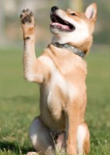
How to Train a Puppy During Your First 30 Days
By Sally Gutteridge | Posts , Puppies
 Bringing a puppy home for the first time is a fun and exciting occasion. That is, until reality sets in, and you realize that you have quite a bit of work on your hands when it comes to house training and stopping a brand-new puppy from chewing and barking.
Bringing a puppy home for the first time is a fun and exciting occasion. That is, until reality sets in, and you realize that you have quite a bit of work on your hands when it comes to house training and stopping a brand-new puppy from chewing and barking.
The first 30 days are the most critical when it comes to how to train a puppy after introducing it to your home. These 30 days will make or break the relationship you have with your pet for the rest of its life. The good news is that you can use helpful training tips to greatly reduce a number of common behavioral issues in new puppies, like:
- Biting
- Chewing
- Barking
- Housetraining accidents
But where to begin? You must start training your puppy from day one. To train a puppy, you need to communicate in a way that it can understand – which is always in the moment. A puppy can only learn by what you reinforce with a reward or when you punish it for doing something wrong.
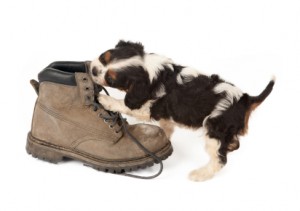 Chewing: If your puppy is playful and spends time playing with its new toys, you can use that opportunity to reinforce. Give a treat and lots of praise and petting to show your puppy that its good behavior has been rewarded.
Chewing: If your puppy is playful and spends time playing with its new toys, you can use that opportunity to reinforce. Give a treat and lots of praise and petting to show your puppy that its good behavior has been rewarded.
On the other hand, if your puppy starts to chew on your sofa, punishment is important to stop the behavior in its tracks. Punish by saying an “AHH!” word to startle it and redirect attention to a chew toy. Once the puppy starts chewing on the toy, reward it immediately.
 Housetraining: The only way to stop a puppy from soiling in the house is to catch it in the act. This is then the opportunity to punish by startling the puppy in the same way with an “AHH!” word and then take it outside. Once the puppy successfully uses the toilet outside, it should be rewarded with a treat, praise, and petting each time.
Housetraining: The only way to stop a puppy from soiling in the house is to catch it in the act. This is then the opportunity to punish by startling the puppy in the same way with an “AHH!” word and then take it outside. Once the puppy successfully uses the toilet outside, it should be rewarded with a treat, praise, and petting each time.
Crate training can be used to effectively establish a housetraining routine for your puppy. Puppies naturally won’t want to soil their sleeping area, so keeping your puppy temporarily crated will make it easier to place it on a toilet schedule. When your puppy doesn’t soil the crate and instead uses the toilet outdoors, praise and reward to reinforce this action.
Biting and Barking: In order to avoid aggressive behavior toward humans and dogs, your puppy must be socialized as soon as possible. Then it can learn how to interact with other dogs and humans of all sizes. This can be best done by taking puppy training classes and even spending time in front of a public place like the supermarket so that your puppy can learn to meet strangers.
Once again, reward all good behavioral interactions immediately; punish the puppy by startling and redirecting attention when you catch it in the act of biting or barking at a stranger.
It’s important not to punish your puppy with hitting or harsh words. Instead, focus most on rewarding good behavior and use the startling technique to redirect and punish bad behavior.
How to Train a Puppy: 3 Important Rules
Timing: As you learn how to train a puppy, keep in mind that timing is of the utmost importance. Make sure to tackle the task of training within at least the first 30 days after bringing your puppy home. If you put it off, your puppy is going to dominate your house and further solidify any bad behaviors it has learned.
Even though you may want to cuddle with and pamper your puppy, training from day one in your home is critical. When it comes to timing to train a puppy, make sure you steer clear of training if your puppy is overly excited, tired, or exploring. If you don’t have the complete attention of your puppy, you will be wasting your time in your training sessions.
- Balanced Diet: What does a balanced diet have to do with how to train a puppy? Everything! If you’re giving your puppy table scraps regularly, not only will this affect its health, but it will cause it to have serious problems with household accidents.
Feed your puppy high quality, nutritious dog food three times a day; reduce feedings to twice a day as the puppy grows older. This regular feeding will make a puppy’s bathroom use more predictable so that you can schedule times to take it outside to prevent accidents.
- Short and Sweet: When it comes to how to train a puppy to sit, heel, or go outside to use the bathroom, you can liken your puppy to a small child. Puppies have a short attention span of only 5 to 10 minutes. Use these short blocks of time to train a puppy two to three times per day for the best results.
So … What’s next?
Here at the Dog Trick Academy we’re a bunch of dog lovers who enjoy helping new dog owners like you, learn how to train their dog. And we don’t limit ourselves to the basics, oh no, we train all sorts of cool tricks and behaviors that would make your friends amazed.
For more information on how you can start training your dog today, visit our Dog Forum!

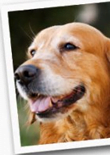
 Are you a new dog owner looking for information on how to take care of a dog? I have written this short article specifically for you so that you can give him the care and love that he needs to thrive in your home and bring you as much joy as possible.
Are you a new dog owner looking for information on how to take care of a dog? I have written this short article specifically for you so that you can give him the care and love that he needs to thrive in your home and bring you as much joy as possible.
 Getting a puppy is an exciting addition to a family. They are adorable and warm. They snuggle and cuddle and seem to do everything right. Unfortunately, this is not all there is to puppies. Getting a puppy is a lot of work, and they don’t stay little and cute forever.
Getting a puppy is an exciting addition to a family. They are adorable and warm. They snuggle and cuddle and seem to do everything right. Unfortunately, this is not all there is to puppies. Getting a puppy is a lot of work, and they don’t stay little and cute forever.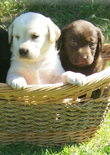
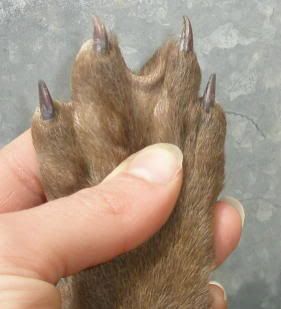 To give you a better understanding of the Labrador breed, it is necessary to learn the origins of this breed. Labradors are originally from Newfoundland and named after the Labrador Sea. They were bred to work with fishermen to retrieve fishnets and other tasks involving swimming in the sea. A unique trait of Labradors is their webbed paws; they allow them to swim faster and easier than most other breeds.
To give you a better understanding of the Labrador breed, it is necessary to learn the origins of this breed. Labradors are originally from Newfoundland and named after the Labrador Sea. They were bred to work with fishermen to retrieve fishnets and other tasks involving swimming in the sea. A unique trait of Labradors is their webbed paws; they allow them to swim faster and easier than most other breeds.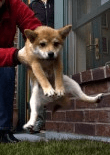
 So, you’ve finally decided to get a puppy? That is fantastic! Puppies are the cutest little things and they will bring lots of happiness in your household. As a new dog owner, I encourage you to read all that you can on puppies so that you can raise him or her in the most loving way possible.
So, you’ve finally decided to get a puppy? That is fantastic! Puppies are the cutest little things and they will bring lots of happiness in your household. As a new dog owner, I encourage you to read all that you can on puppies so that you can raise him or her in the most loving way possible.